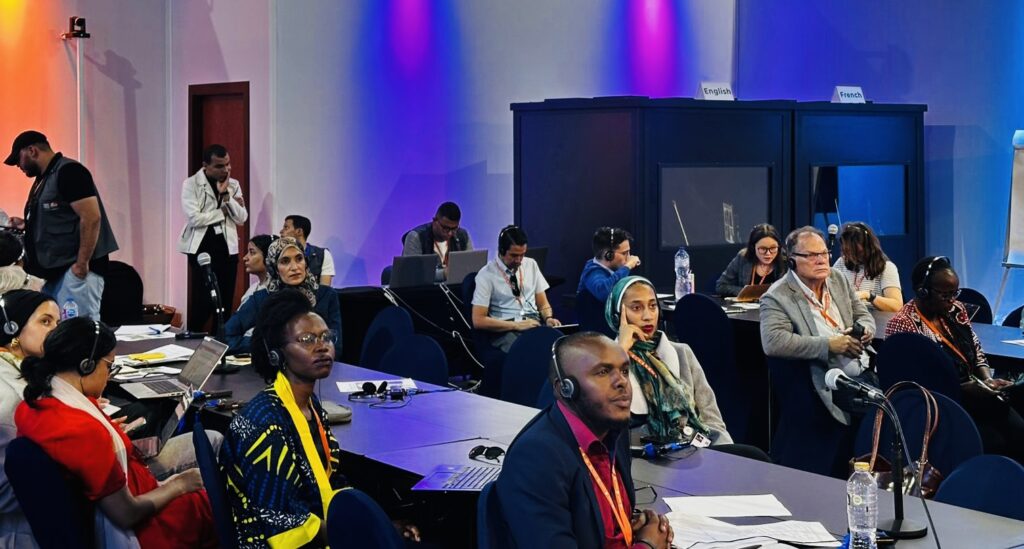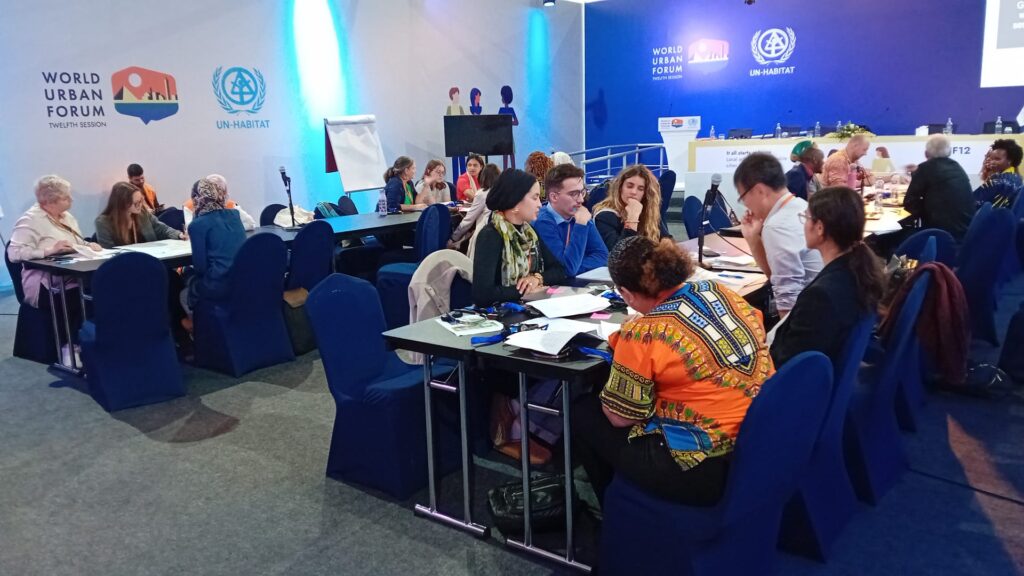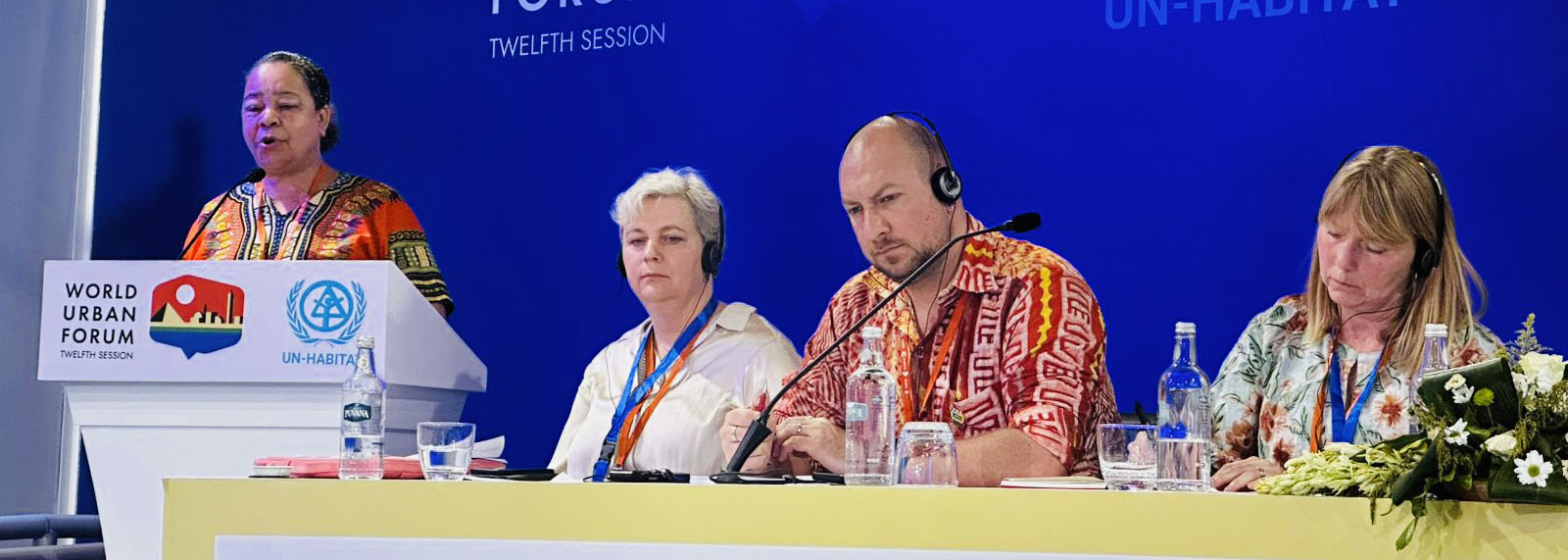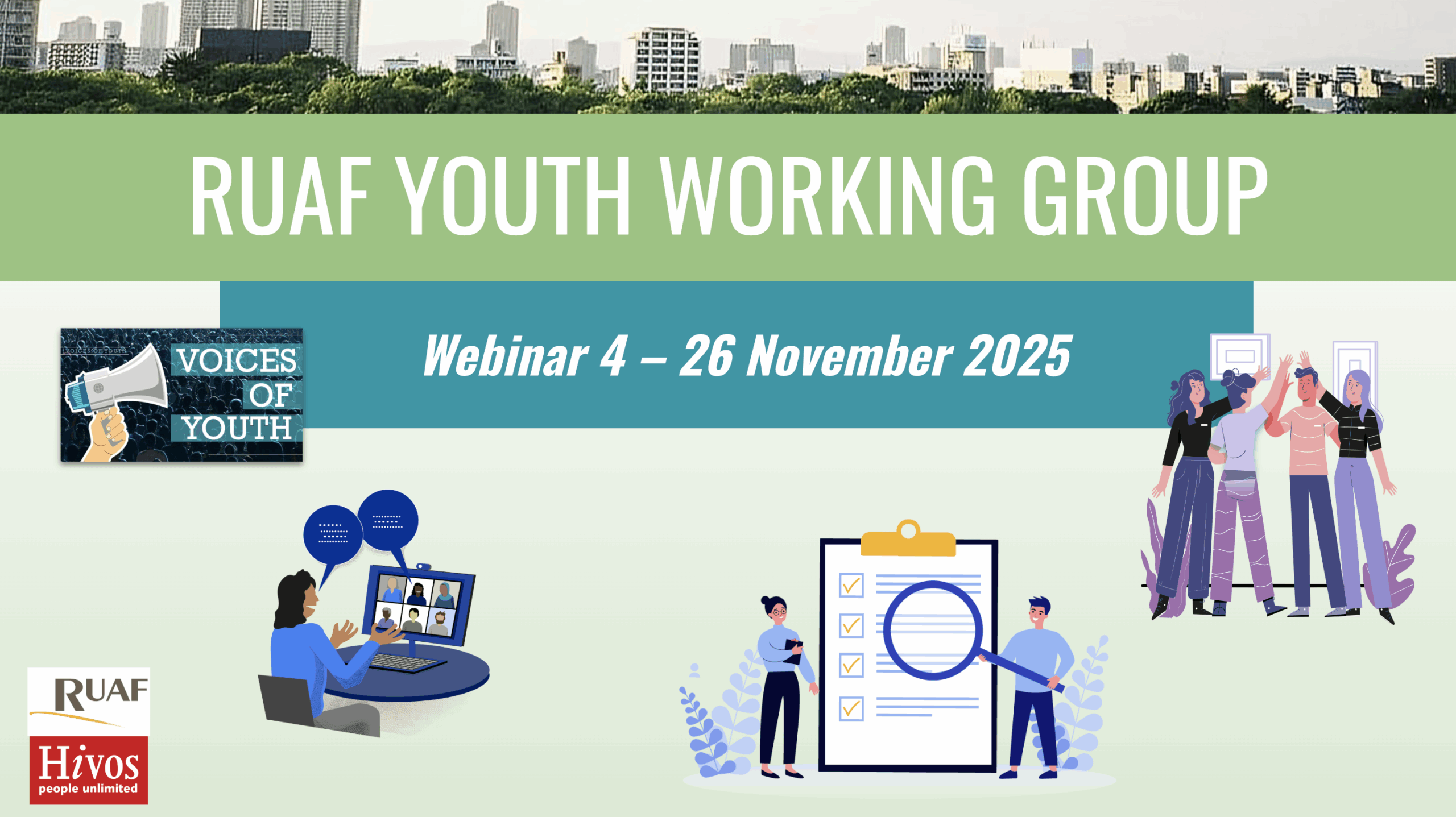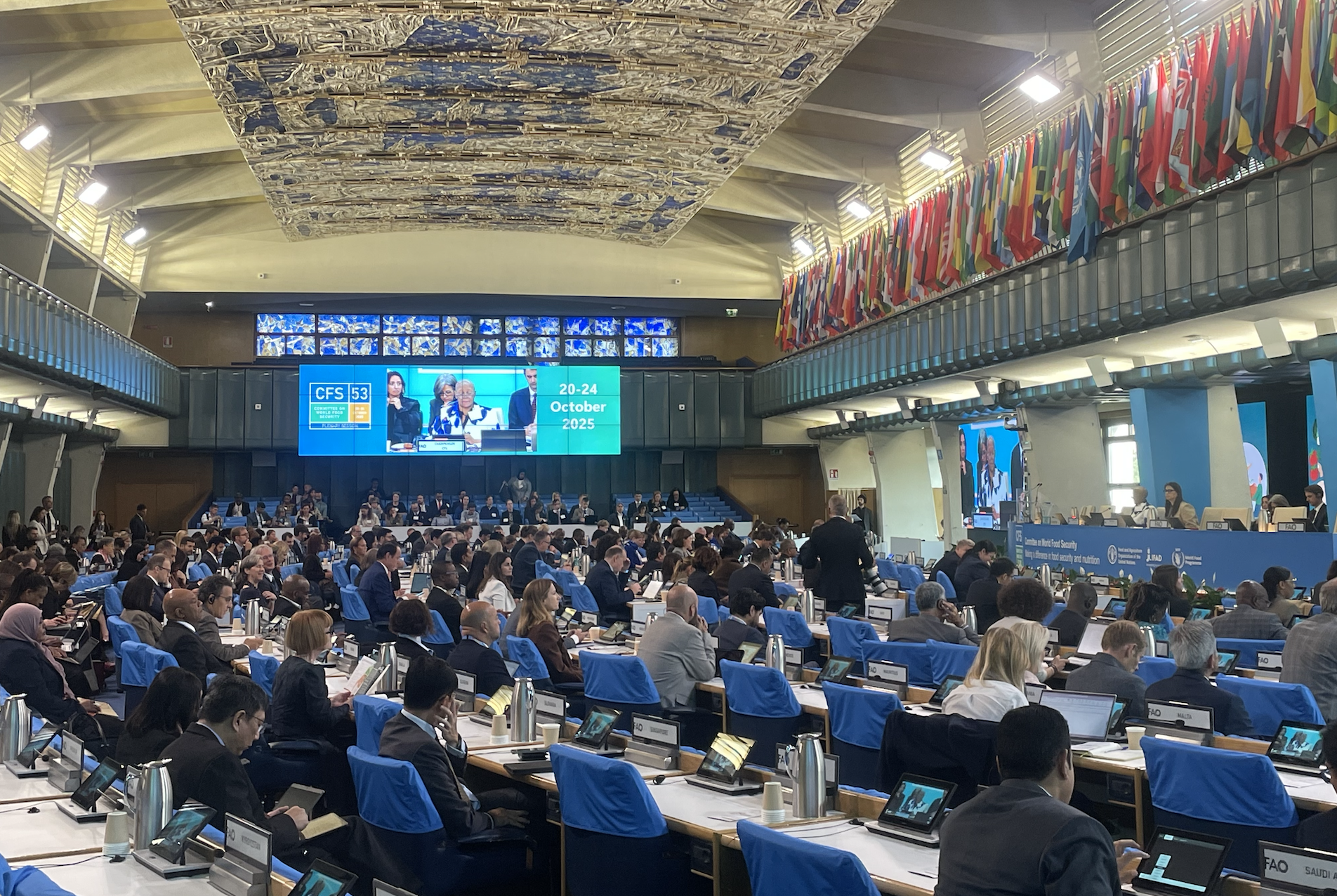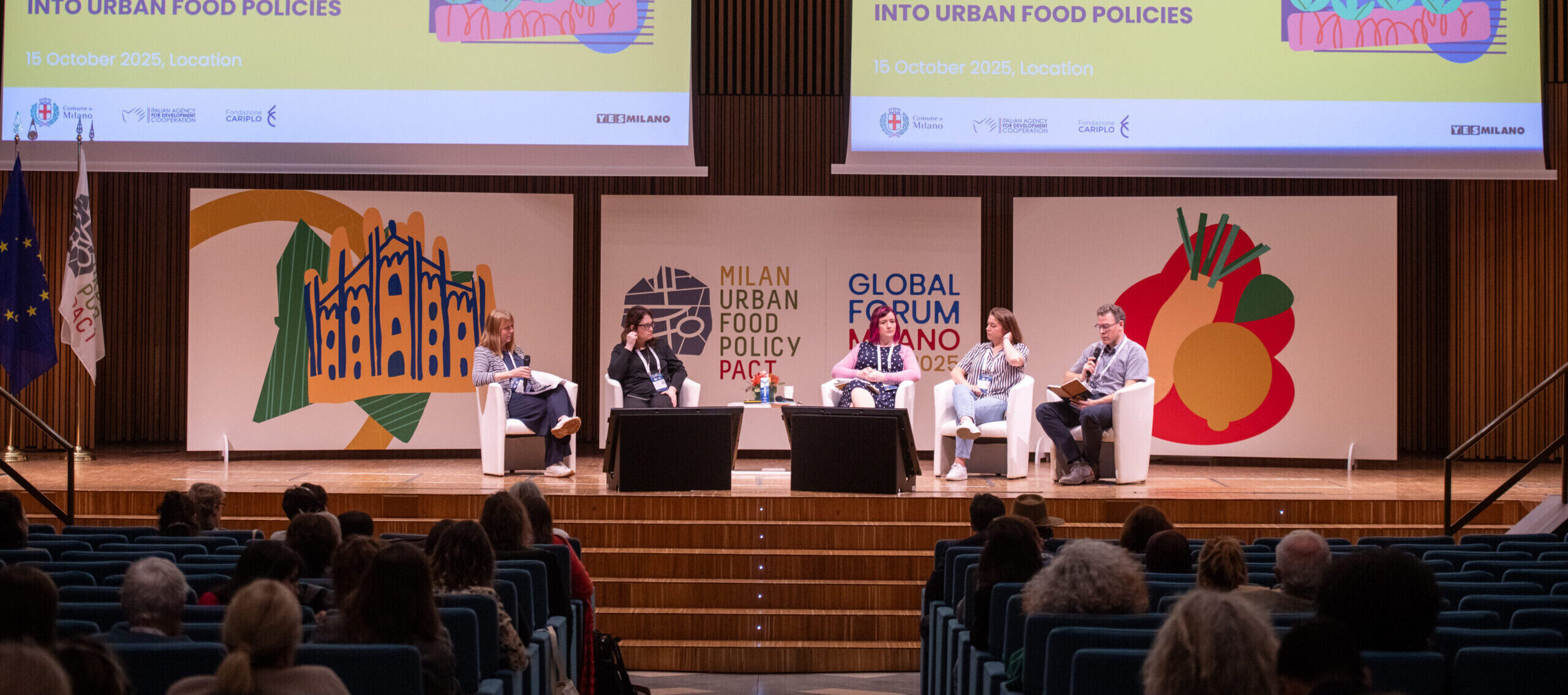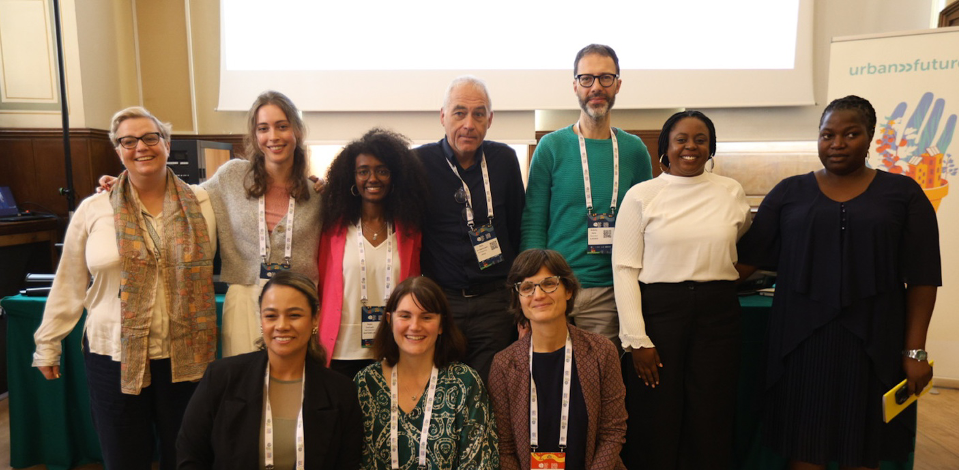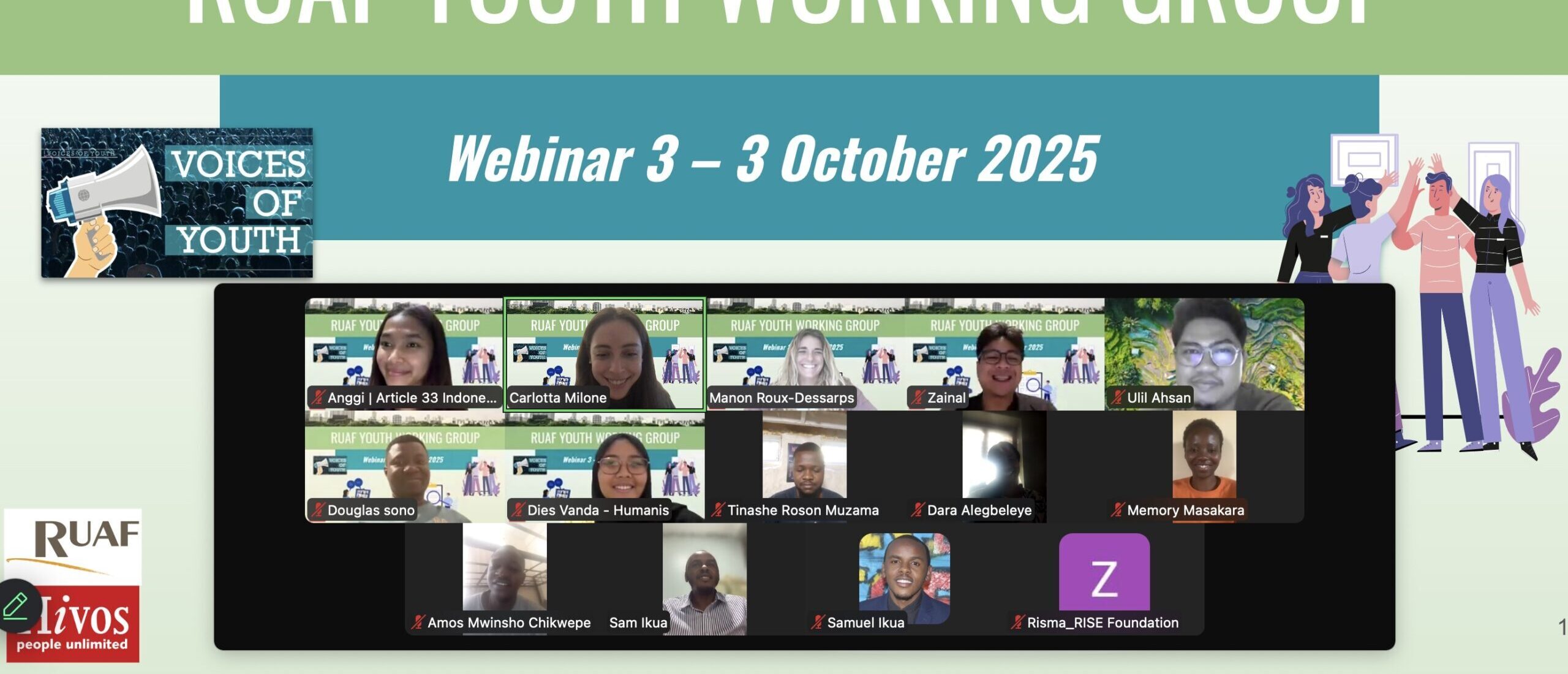A training event on outcomes-based indicators at World Urban Forum 12 led to participant pledges to encourage their cities to monitor the sustainability of their food systems, and strengthen collaboration and data-sharing between local government departments and non-governmental stakeholders.
The three-hour training event entitled ‘Governing the Water-Energy-Food Nexus: Lessons from African Cities’ took place on 7th November and was co-organized by RUAF, the CGIAR Resilient Cities initiative, FAO, and ICLEI. Over 30 delegates at the WUF12 in Cairo, Egypt, took part from local and regional governments, NGOs, development agencies, UN agencies, and universities.
The event opened with brief introductions to the two methodologies under discussion: the Water Energy Food Nexus, presented Paul Currie, Director, Urban Systems at ICLEI Africa; and the outcomes-based indicators approach by Joy Carey, Senior Consultant at RUAF, who has led development of the approach over several years, with FAO.
Two local government representatives then shared how the methodologies have been deployed in their cities.
Kayleen Simpson, Manager, Research at the City of Cape Town presented how the city staved off disaster when the third consecutive year of drought brought it to the brink of ‘Day Zero’ – the day it was projected to run out of water. She shared how the city monitored water resources and usage, the mitigation strategies that were put in place, and the resilience lessons that have been deployed in managing other shocks and stresses affecting Cape Town.
Rose Randall, Director of Food Systems at Nairobi City County (NCC), shared the background on development of the Nairobi City County Food System Strategy, including key challenges, mandate of the food, agriculture and natural resource units, and the adoption of a food systems approach. She showcased some of outcome-based indicators related to the water-energy-food nexus included in the monitoring framework for the strategy, which was developed with support from RUAF and Mazingira Institute, and funded under the CGIAR Resilient Cities Initiative.
Group exercise in outcomes-based indicators
Following the presentations, participants were organized into four small groups for a practical exercise in developing outcomes-based indicators for challenges related to the Water-Energy-Food Nexus.
‘All too often projects tend to focus most on action and on targets related to actions, without careful consideration of the types of desired outcomes that should result from the actions,’ said Joy Carey. ‘This can sound obvious but it is surprising how often the process of thinking about outcome-related indicators is missing.
‘Our aim with this workshop was to take participants through a process of developing outcome related indicators in relation to real-life food/water/energy challenges in their own cities. Using data (both quantitative and qualitative) to make visible what is actually happening, can help us to be more targeted and impactful in our interventions and actions.’
Participants reflected on how the water-energy-food nexus plays out in their own cities, and each person shared one related challenge with the rest of their group.
The groups then selected one challenge as the focus for the activity. They collectively identified two outcomes or desired changes that would provide a solution to the challenge; agreed how to measure progress on each outcome or desired change; and articulated two indicators that are SMART – Specific, Measurable, Achievable, Relevant, and Time-bound.
The selected challenges were:
- Access to agricultural land in Cairo City
- Water scarcity in Egypt and its impact on rice production and consumer diets
- Limited energy and technology for food storage and preservation, resulting in high food costs, high levels of food loss and waste (and associated greenhouse gas emissions).
- Waste management in rural communities in Egypt resulting in dumping in canals and impacting water quality
What participants learned
At the end of the exercise, the groups shared their take-away lessons about working with outcomes-based indicators. These included:
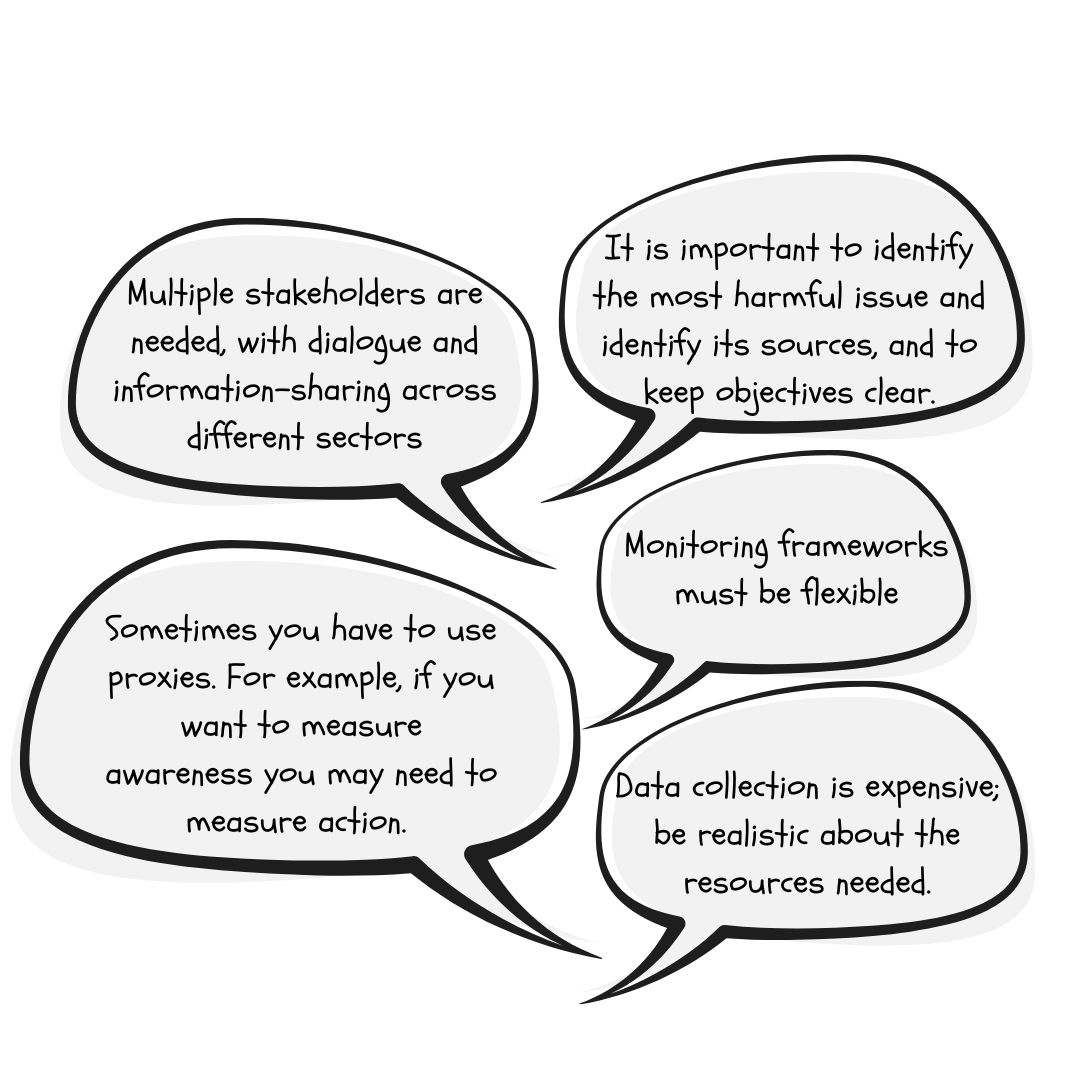
Turning pledges into reality
Speaking after the event, Joy Carey said: ‘We hope our workshop participants will see the value and will now advocate more strongly for the use of this circular process in their own cities and workplaces.’
Martha Awinoh, Senior Communication Specialist, CGIAR Resilient Cities Initiative, added: ‘The CGIAR is encouraging more cities to follow the example of Nairobi by integrating outcome-based indicators into their governance and planning frameworks. By generating evidence, developing and scaling technologies as well as building capacity to urban challenges, the CGIAR supports the global push toward sustainable, and resilient urban food systems.’
For more information on working with outcomes-based indicators, or to arrange a training event in your city, please get in touch with RUAF using the contact form.
